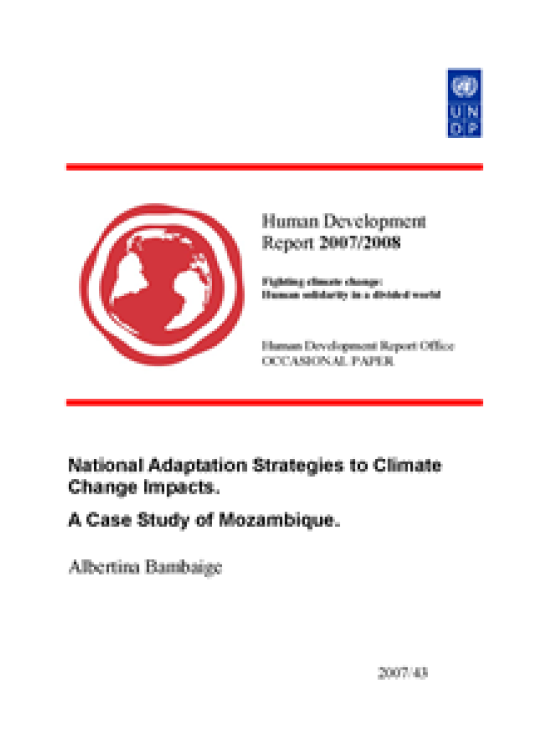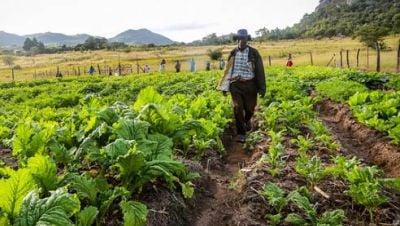National Adaptation Strategies to Climate Change Impacts
A Case Study of Mozambique

Download Report by Language
Document
bambaigealbertinamozambique.pdf
(344.21 KB)
Citation
Bambaige, Albertina. 2008. National Adaptation Strategies to Climate Change Impacts: A Case Study of Mozambique. New York.
National Adaptation Strategies to Climate Change Impacts
A Case Study of Mozambique
Posted on: January 01, 2008
Climate Change projections indicate that the world temperature is increasing continuously. According to the Third Assessment Report of the Intergovernmental Panel on Climate Change (IPCC, 2001), the global average temperature will increase by 1.4° C to 5.8° C between 1990 and 2100 if the levels of emissions are not reduced. This is largely attributed to the anthropogenic activities especially the use of fossil fuels in the developed world. Developing countries are considered to be the ones suffering more from the effects of climate change and African countries are even more vulnerable due to their dependence on natural resources. Although Africa’s contribution of greenhouse gas emissions to global warming is low, it carries the greatest burden of the impacts of climate change, mainly due to lack of ability to cope with and adapt to this phenomena. The impacts of climate change in Africa are generally manifested in human health and in the agricultural sector worsening the existing levels of poverty and undermining all development efforts in this continent (ILRI, 2006).

